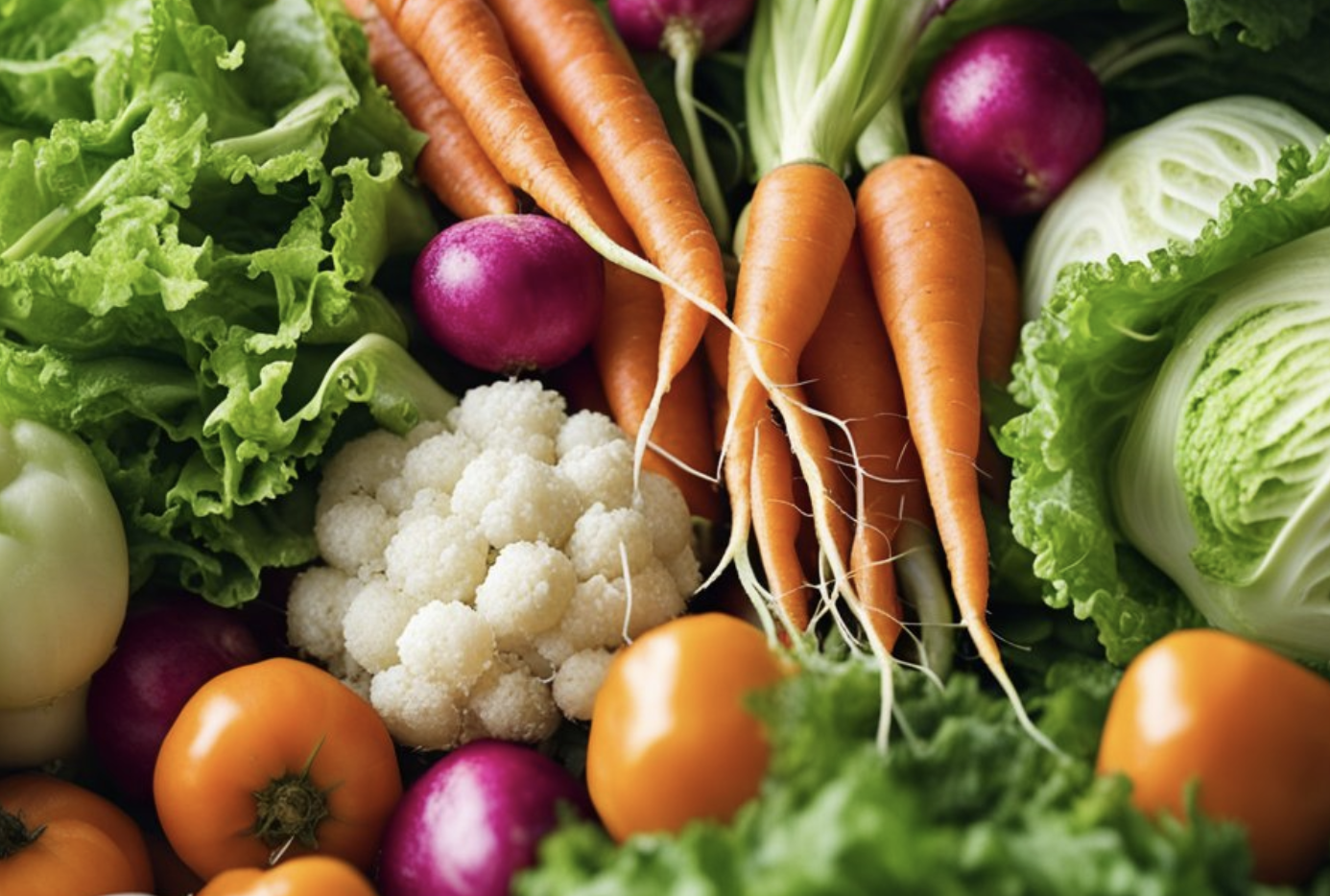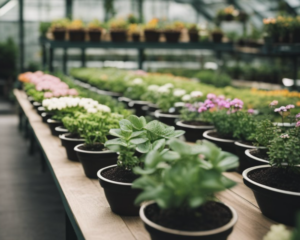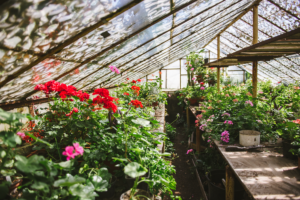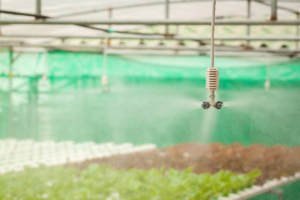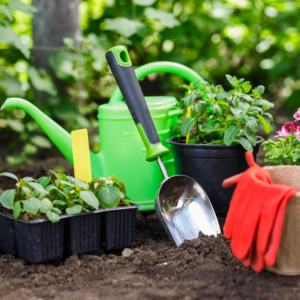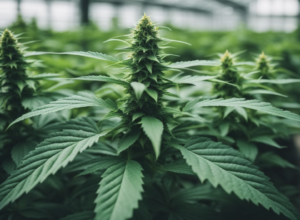I’ve always been passionate about growing my own vegetables. But keeping them healthy without harmful chemicals can be a real challenge. That’s when I discovered organic pesticides.
Organic pesticides are made from natural ingredients. They help keep bugs away without hurting the plants or the environment.
Using these methods, my vegetables have flourished. They are tasty and free from synthetic chemicals.
Understanding Organic Pesticides
Organic pesticides help protect crops from pests while being safer for the environment. They use natural ingredients and strict regulations to ensure they are safe and effective.
Definition and Principles
Organic pesticides come from natural sources. These can include plants, minerals, or microbes. The main idea is to use substances that are found in nature.
Some common organic pesticides are neem oil, diatomaceous earth, and Bacillus thuringiensis (Bt). Neem oil is used to control insects and fungi. Diatomaceous earth kills pests with its tiny sharp edges. Bt is a bacteria that targets caterpillars.
The principles of organic pesticides are to manage pests with the least harm to plants, animals, and people. They often work by disrupting the life cycle of pests rather than killing them outright.
Organic vs. Synthetic Pesticides
There are big differences between organic and synthetic pesticides. Synthetic pesticides are made from chemicals in labs. Organic pesticides come from natural materials.
Differences:
- Source: Organic from nature, synthetic from chemicals.
- Effects: Organic is usually less toxic to humans and wildlife.
- Persistence: Organic breaks down faster in the environment.
- Regulations: Organic has stricter rules on their use.
While synthetic pesticides might work faster, they can leave harmful residues. Organic pesticides often need more frequent applications but are safer over time.
Regulations and Certifications
To use the label “organic,” pesticides have to meet strict standards set by organizations like the USDA. These standards ensure the pesticides are safe for humans, animals, and the environment.
Important Certifications:
- USDA Organic: Ensures the product meets all organic standards.
- OMRI Listed: Products approved for organic farming by the Organic Materials Review Institute.
These labels help consumers know the product is genuinely organic. Farmers must also keep records and pass inspections to prove they’re following the rules.
Using certified organic pesticides means supporting sustainable farming practices. It also ensures healthier food for you and the planet.
Common Organic Pesticides for Vegetables
Finding safe and effective ways to protect vegetables is key for any gardener. Organic pesticides can help combat pests without harming the environment or the health of those eating the vegetables.
Neem Oil
Neem oil is a natural product from the neem tree. It’s popular because it works against many types of pests like aphids, spider mites, and whiteflies. I mix it with water and a bit of soap to make a spray.
Neem oil doesn’t just kill pests; it also disrupts their growth and reproduction. This makes it great for keeping pest populations low over time. Plus, it breaks down quickly, so it doesn’t hang around to harm beneficial insects or the plants.
Diatomaceous Earth
Diatomaceous earth is made from fossilized algae. It’s effective because it damages the exoskeletons of insects, causing them to dehydrate and die. I sprinkle it around my plants to create a barrier against slugs, ants, and other pests.
It’s important to use food-grade diatomaceous earth, as it’s safe for both people and pets. It works well on dry days since moisture can reduce its effectiveness. Remember to reapply after rain or heavy watering.
Bacillus Thuringiensis
Bacillus thuringiensis (Bt) is a bacterium that kills certain insects. It’s especially good for caterpillars and larvae. I can find it in powder or liquid form, and I apply it directly to the leaves where pests are feeding.
Once ingested, the bacteria release toxins that kill the pests within days. Bt is selective, meaning it won’t harm beneficial insects, animals, or humans. It’s an excellent choice for targeting specific pests without broad-spectrum impact.
Insecticidal Soaps
Insecticidal soaps are made from potassium salts of fatty acids. They work by breaking down the outer layer of soft-bodied insects like aphids and mites. I use these soaps by mixing them with water and spraying directly on the pests.
These soaps are effective and safe for my vegetables. They leave no harmful residues and can be used up to the day of harvest. For best results, I apply them in the early morning or late evening to avoid burning the plants.
Benefits of Using Organic Pesticides
Organic pesticides offer several benefits, including positive effects on the environment, better health for people, and protecting helpful insects.
Environmental Impact
Organic pesticides often break down faster than chemical ones. This reduces harmful residues in soil and water. They don’t contaminate groundwater or harm wildlife as much. Using organic options helps maintain ecosystem balance. This leads to healthier plants, soil, and water sources. They also encourage sustainable farming practices. This minimizes the overall environmental footprint. Farmers often see improvements in soil fertility. This is due to the natural composition of the pesticides.
Human Health Considerations
Organic pesticides are typically less toxic to humans. They have fewer harmful chemicals, which means there’s less risk of exposure to dangerous substances. This is especially important for people working on farms. These products can lower the chances of pesticide-related health issues. Eating foods treated with organic pesticides can also be safer. There’s less risk of chemical residues in the food we eat. This can contribute to overall better health for families.
Effect on Beneficial Insects
Using organic pesticides helps protect beneficial insects. These include pollinators like bees and predatory insects that control pests. Chemical pesticides often kill these helpful insects. This can lead to an imbalance in the ecosystem. With organic options, beneficial insects can thrive. This helps maintain natural pest control and healthier crops. Farmers can also see improved pollination rates. This can lead to better yields and higher-quality produce.
Application Tips and Best Practices
When using organic pesticides for vegetables, it’s important to get the timing, technique, and safety right. Here are some tips to help you do just that.
Timing and Frequency
Applying organic pesticides at the right time can make a big difference. I usually spray early in the morning or late in the evening. This helps avoid the heat of the day and reduces the risk of harming beneficial insects like bees. I recommend applying the pesticide every 7-10 days during the growing season. If I notice a pest problem, I might apply more frequently until it’s under control. Consistency is key for effective pest management.
Application Techniques
How you apply the pesticide matters just as much as when you do it. I use a hand-held sprayer for smaller gardens and a backpack sprayer for larger areas. It’s important to cover all parts of the plants, including the undersides of leaves where pests often hide. Make sure to shake or mix the pesticide solution well before applying to ensure even coverage. I always check for rain in the forecast too, since rain can wash away the pesticide.
Safety Precautions
Safety is really important when handling any kind of pesticide. I always wear gloves, long sleeves, and eye protection to minimize contact with the pesticide. It’s a good idea to read and follow the instructions on the label carefully. Keep pets and children away from the treated area until the pesticide has dried completely. Proper storage is also crucial; I keep my pesticides in a cool, dry place out of reach of kids and pets.
Managing Resistance to Organic Pesticides
I’ve learned that even organic pesticides can spark resistance in pests over time. It’s like when bugs get too used to the same stuff and start surviving it.
One way to manage this is rotating different types of organic pesticides. By changing it up, the pests don’t get a chance to adapt as quickly.
Another trick is combining treatments. I might use a mix of organic pesticides instead of just one. This can be more effective and keeps the pests guessing.
Here’s a simple list of methods:
- Rotate organic pesticides
- Combine treatments
- Use beneficial insects
- Employ cultural practices
It’s also good to use beneficial insects that prey on the pests. Ladybugs and lacewings, for example, can help keep pest populations under control.
Implementing cultural practices helps too. This includes crop rotation, planting pest-resistant varieties, and maintaining healthy soil. Healthy plants are less prone to severe pest problems.
Using a table might help understand these ideas better:
| Method | Description |
|---|---|
| Rotate Pesticides | Switch between different organic pesticides |
| Combine Treatments | Mix various organic pesticides |
| Beneficial Insects | Introduce natural predators like ladybugs |
| Cultural Practices | Crop rotation, planting resistant varieties, healthy soil |
Sticking to these strategies helps manage resistance and keeps my garden healthy and productive.
Effectiveness of Organic Pesticides
I’ve been using organic pesticides in my garden, and here’s what I’ve found.
Organic pesticides work pretty well, but they don’t always act as fast as synthetic ones. Think of it like a sports team that’s good, but maybe not as quick on its feet. They still get the job done, though.
Some bugs seem to be more resistant to organic pesticides. I notice that aphids and beetles are harder to control. It can be frustrating, but with patience, the organic stuff usually works.
Organic pesticides are safer for beneficial insects like bees and ladybugs. This means my garden stays healthy and buzzing with life.
Here are a few examples of organic pesticides I’ve used:
| Pesticide | Effective Against |
|---|---|
| Neem Oil | Soft-bodied insects like aphids |
| Diatomaceous Earth | Slugs, ants, and beetles |
| Bacillus thuringiensis (Bt) | Caterpillars and worms |
Using these products, I’ve seen a definite decrease in pest issues. Each type of organic pesticide seems to have its own strengths and weaknesses.
I also found that timing and application are crucial. It’s important to apply these treatments regularly and after rain since they can wash off.
In my opinion, while organic pesticides may require more effort, the benefits to my garden and the environment are worth it. They might take longer to see results, but the safety and health of my plants make it a fair trade-off.
Conclusion
I’ve learned that organic pesticides can be a great fit for vegetable gardens. They help keep pests away without harming the environment.
Organic pesticides come from natural sources like plants or minerals. That means they’re less likely to be toxic to animals or humans.
There are many types of organic pesticides to choose from. Some of my favorites include neem oil, diatomaceous earth, and insecticidal soap. Each type works in a different way.
I’ve found that it’s important to follow the instructions on the label. Using too much or too little can make the pesticide less effective. Consistency is key for best results.
Here’s a list of some benefits of using organic pesticides:
- Eco-friendly: These pesticides are made from natural materials.
- Safe: They are generally safer for humans and pets.
- Effective: They can be just as effective as chemical pesticides when used correctly.
In my own garden, I’ve seen fewer pests and healthier plants since making the switch. Growing vegetables organically feels good and tastes better too.
I hope this helps you decide if organic pesticides might work in your garden. Happy gardening!

